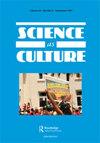瑞典核废料管理作为一种惰性争议:用批判性建构主义理解冷技术冲突
IF 2.4
3区 哲学
Q1 CULTURAL STUDIES
引用次数: 0
摘要
科学技术研究(STS)长期以来一直将科学争议作为确定技术民主前景的一种方式。当代STS倾向于优先考虑“溢出”争议,外行通过解释更广泛的含义来挑战专家的技术框架,从而打开技术问题。然而,许多争议并非如此;它们主要是在官方程序内的技术性登记册上运作,因此更广泛的影响仍然是隐性的。在瑞典核废料管理的情况下,一个重大的争议没有溢出,因此提供了一个机会,从理论上阐述这种“惰性”的争议。关键的见解可以来自安德鲁·芬伯格的批判建构主义——STS和法兰克福学派的结合体。它可以帮助解释为什么一些争议保持静止,以及在那里什么是危险的,不管演员的行动和声明。为了做出这些贡献,批判建构主义需要强调其批判遗产。与许多关于STS的当代研究一样,批判性建构主义越来越多地开始研究变化是如何发生的,而不是如何维持现状。通过STS的“结构封闭”思想——争议如何被霸权结构封闭——惰性争议可以通过批判建构主义来解决,从而丰富了STS中争议的研究。本文章由计算机程序翻译,如有差异,请以英文原文为准。
Swedish nuclear waste management as an inert controversy: using critical constructivism to understand cold technological conflict
Science and technology studies (STS) has long studied scientific controversies as a way to identify prospects for technical democracy. Contemporary STS tends to prioritize ‘overflowing’ controversies, where lay actors challenge experts’ technical frameworks by explicating the broader implications and so open up technological issues. Yet many controversies are not like this; they operate on a largely technical register within official procedures, so the broader implications remain implicit. In the case of Swedish nuclear waste management a major controversy did not overflow and so presents an opportunity to elaborate theoretically on such ‘inert’ controversies. Crucial insights can come from Andrew Feenberg’s critical constructivism – an alloy of STS and the Frankfurt School. It can help explain why some controversies remain inert and what is at stake there, regardless of the actors’ actions and statements. To make these contributions, critical constructivism needs to emphasize its critical heritage. As with many contemporary studies in STS, critical constructivism has increasingly come to study how change happens, at the expense of how the status quo is maintained. Through the STS idea of ‘structural closure’ – how controversies can be closed by hegemonic structures – inert controversies can be addressed by critical constructivism, thus enriching the study of controversies in STS.
求助全文
通过发布文献求助,成功后即可免费获取论文全文。
去求助
来源期刊

Science As Culture
Multiple-
CiteScore
5.20
自引率
3.80%
发文量
28
期刊介绍:
Our culture is a scientific one, defining what is natural and what is rational. Its values can be seen in what are sought out as facts and made as artefacts, what are designed as processes and products, and what are forged as weapons and filmed as wonders. In our daily experience, power is exercised through expertise, e.g. in science, technology and medicine. Science as Culture explores how all these shape the values which contend for influence over the wider society. Science mediates our cultural experience. It increasingly defines what it is to be a person, through genetics, medicine and information technology. Its values get embodied and naturalized in concepts, techniques, research priorities, gadgets and advertising. Many films, artworks and novels express popular concerns about these developments. In a society where icons of progress are drawn from science, technology and medicine, they are either celebrated or demonised. Often their progress is feared as ’unnatural’, while their critics are labelled ’irrational’. Public concerns are rebuffed by ostensibly value-neutral experts and positivist polemics. Yet the culture of science is open to study like any other culture. Cultural studies analyses the role of expertise throughout society. Many journals address the history, philosophy and social studies of science, its popularisation, and the public understanding of society.
 求助内容:
求助内容: 应助结果提醒方式:
应助结果提醒方式:


